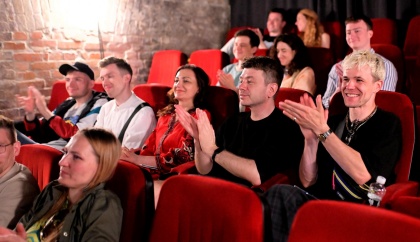
22 film club moderators had successfully submitted their proposals for the advocacy projects competition announced by the Network team before the deadline. After careful consideration and discussions, 15 of them received financial support to implement their ideas. However, that's not the end: the management team is ready to provide other participants of the competition with consultations and methodological support to implement their proposals.
Unlike the previous year, when only three months were allocated for the implementation of advocacy projects within the DOCU ACTS programme, this year's advocacy campaigns of the film clubs last for six months and are due at the end of September 2024. Most of the participating film clubs have already started their advocacy campaigns.
The ideas submitted to the programme by the moderators are very diverse. What unites them is their increased attention to the problems of internally displaced persons (IDPs), their integration into the life of new communities, and close cooperation of all citizens against the challenges of wartime.
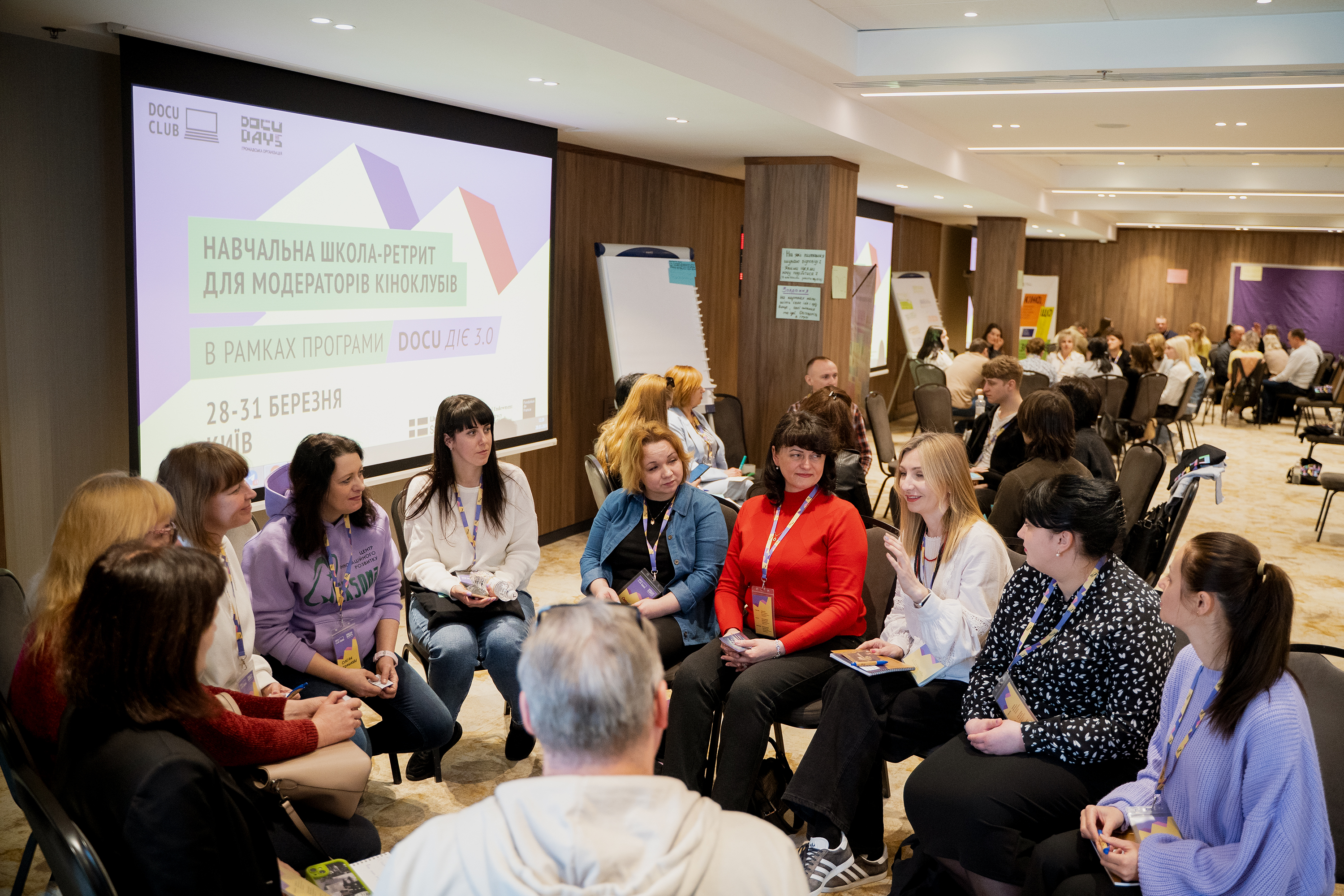
Photo from the DOCU/CLUB Network's Retreat School for Film Club Moderators
Some of the moderators who are starting to work on advocacy campaigns were also forced to leave their homes as a result of the full-scale invasion. Natalia Kryvoruchko from Tokmak, who now lives and works in Uzhhorod, focused on the violation of IDPs' rights in temporary accommodation centes (TACs) in Zakarpattia region. Through her campaign, she plans to develop and approve a job description for the commandants of the TACs to ensure the rights of IDPs and reduce conflict situations.
Hryhoriy Kurachytskyi is from Mariupol, currently working in Dnipro. He has decided to focus his advocacy efforts on getting a psychologist to work at the IDP hub at the expense of the state. To achieve this goal, he plans to submit proposals to the Dnipro City Council to provide free psychological assistance in the city's hubs and places of compact residence of IDPs.
Several film clubs have initiated campaigns targeting children. Last year, Olha Kotok from Hoshcha, Rivne region, successfully implemented her first advocacy project. Her idea has passed this year’s selection as well. Olha Kotok's campaign is aimed at national and patriotic education of students. The film club moderator initiated the development of a local targeted programme to strengthen Ukrainian national and civic identity among schoolchildren.
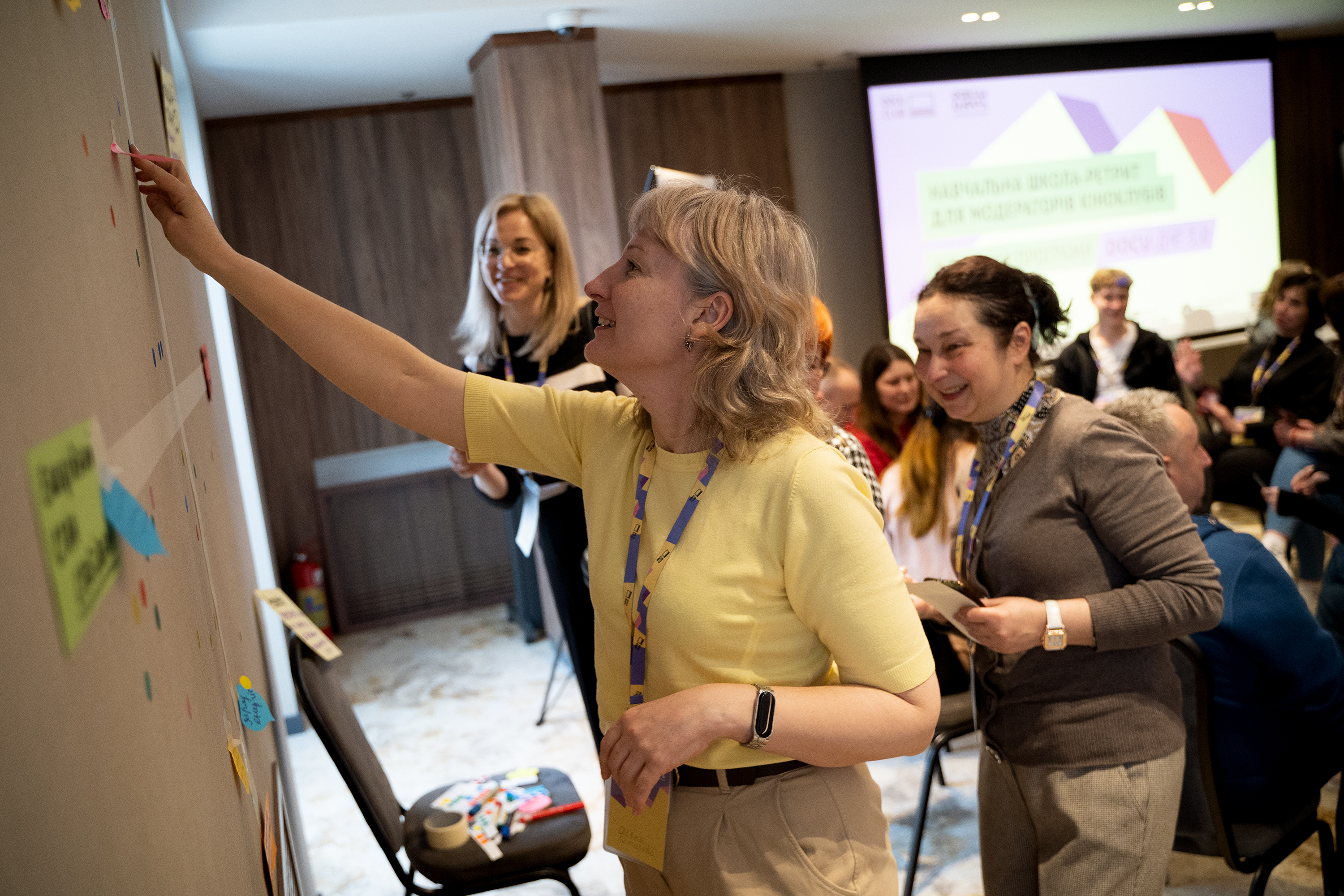
Photo from the DOCU/CLUB Network's Retreat School for Film Club Moderators
The aim of the advocacy campaign initiated by Tetyana Lekhniuk from Lviv is to initiate a school programme that would help organize leisure activities for teenagers during summer school holidays, encourage live communication and affinity, and socialize internally displaced teenagers in new school surroundings.
Olena Arutyunyan from Kropyvnytskyi will focus on ensuring sustainable social and emotional adaptation of children and youth from large and military families, orphans, and IDPs. She plans to develop and approve a draft programme for psychological support and mental health support of children from these vulnerable groups in the Kropyvnytskyi community.
The Network's film clubs at libraries have submitted their advocacy projects as well. Last year, Vira Karpinska from Lviv worked on a project on information accessibility for visually impaired and blind people. This time, the moderator has a new large-scale idea: she wants to develop and approve with the Probation Center a programme of social and educational activities for juvenile probation clients. The programme would be launched at her library and further expanded to libraries and probation centers in other cities and towns of the country.
Natalka Kostyshyn from Chervonohrad in the Lviv region is advocating for the development and village council approval of a programme for the development of a community library network. Her project involves creation of a network of spaces at the libraries’ basis that will help bring residents together and facilitate the integration of IDPs into new communities.
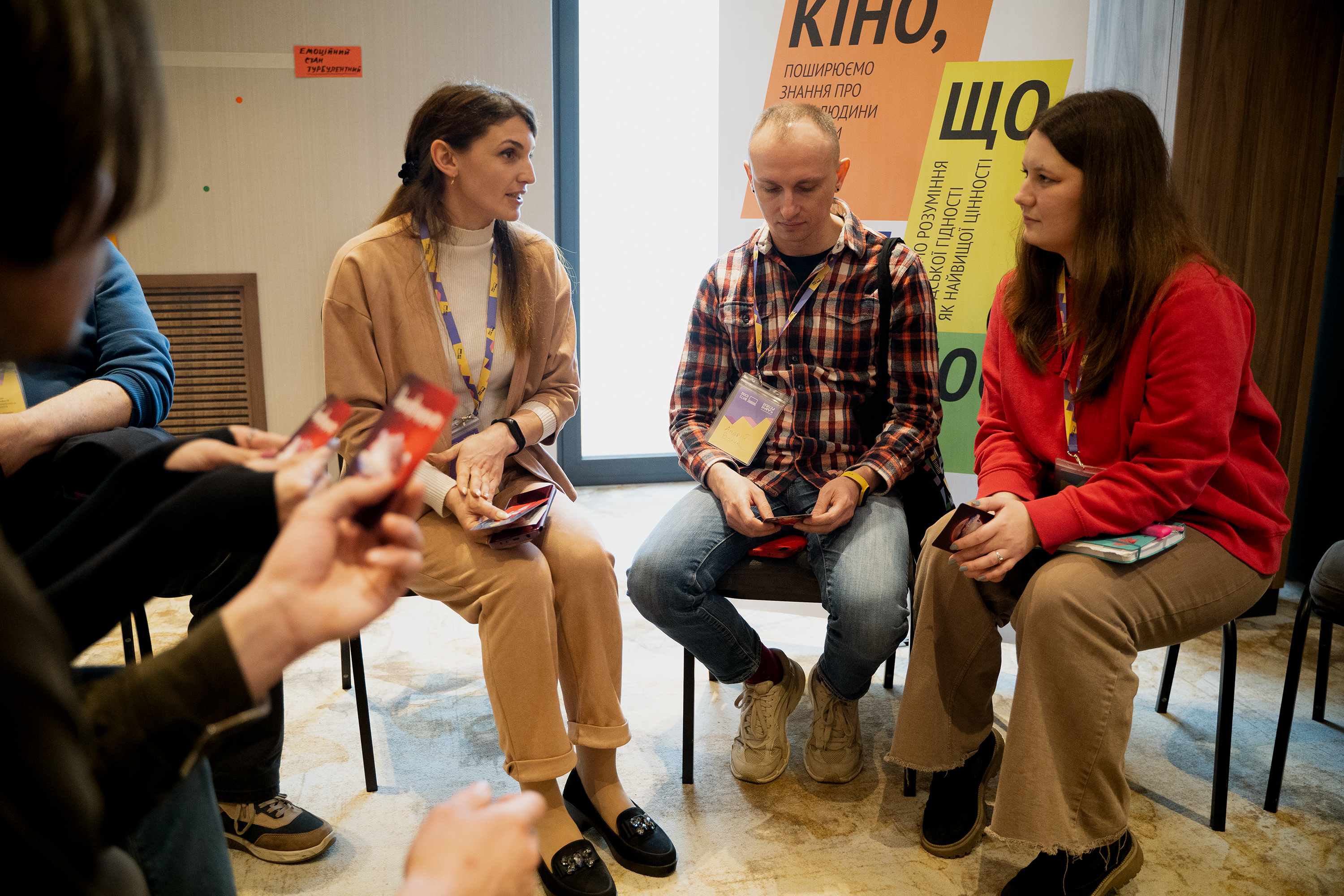
Photo from the DOCU/CLUB Network’s Retreat School for Film Club Moderators
Two film clubs focused their attention on solving the problem of unemployment and job placement in their communities. Thus, Zoya Filipenko from Khmelnytskyi plans to develop a series of measures to increase employment opportunities for IDPs as part of her advocacy campaign. Namely, she wants to create training programmes for small business development and have the village council approve changes to the Programme for Attracting Investment to the Community Economy.
Volodymyr Shabanov from Oleksandrivka, Kirovohrad region, is advocating for an initiative to employ and adapt people affected by the war through paid community service. His campaign also includes the village council’s approval of a long-term programme for psychological support to IDPs.
Larysa Shuvalova from Uzhhorod has started work on development and implementation of a project on information accessibility for people with reading difficulties. According to the moderator, her advocacy campaign will result in the Uzhhorod City Council's inclusion of the easy-reading format into the community’s barrier-free space strategy.
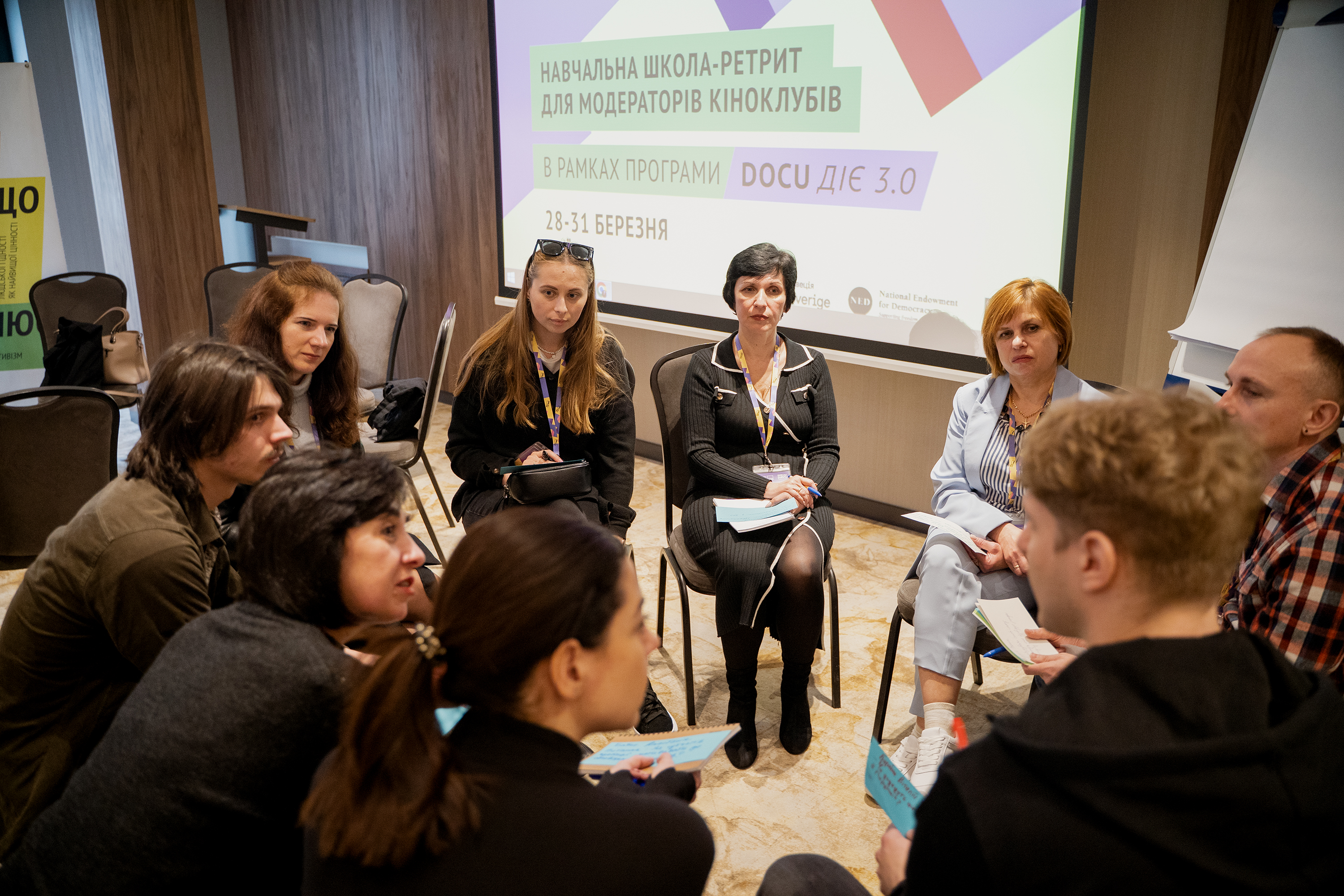
Photo from the DOCU/CLUB Network's Retreat School for Film Club Moderators
Valentyna Makukha and Anzhelika Penkina from Shostka in the Sumy region focused on developing critical thinking and information hygiene skills among the community residents, especially among the elderly. Their advocacy proposals on the improvement of media literacy are to be included in the Shostka Socio-Economic and Cultural Development Programme.
As part of her advocacy campaign, Vira Savka from Truskavets plans on bringing together civil society organizations and local council members to develop and approve a roadmap that would ensure equal participation of women and men in conflict resolution, recovery processes, countering security challenges, and systemic counteraction to gender-based and conflict-related violence.
Last year, Yuliya Davydiuk from Pokaliv in the Zhytomyr region implemented an advocacy project aimed at creation of community memorial sites for those who died in the Russian-Ukrainian war and demolition of a monument to the founders of the Soviet regime. Her current campaign is oriented towards preservation of the historical and cultural heritage of her native land, which is especially threatened during the war. The moderator encourages the Ovruch community to create a department for protection of cultural heritage and historical environment, as well as preservation of the local monument of national significance.
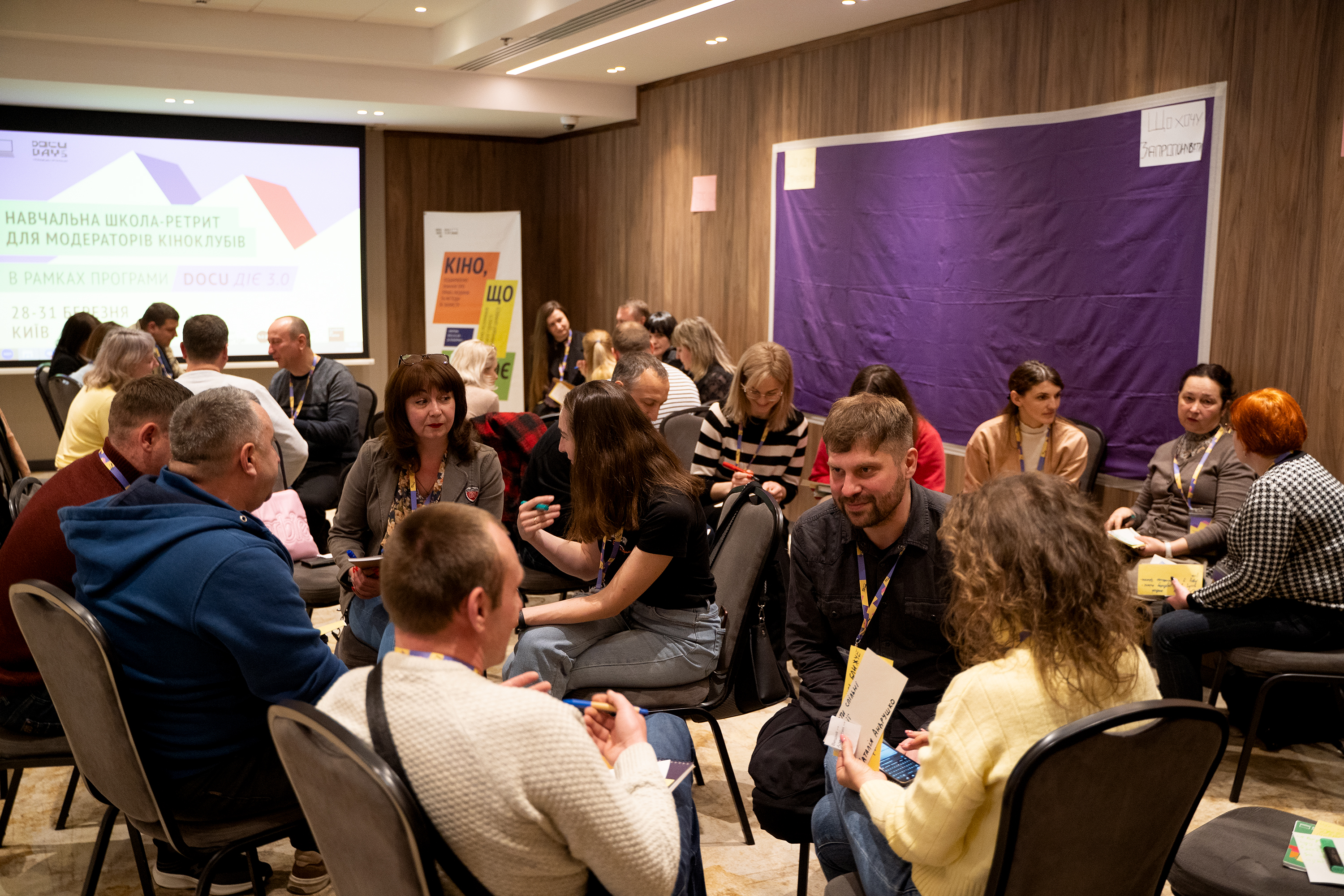
Photo from the DOCU/CLUB Network’s Retreat School for Film Club Moderators
The moderators of the Network's film clubs also expressed a great interest in the issue of environmental protection in communities. Tetiana Volkova from Pavlohrad in the Dnipro region initiated a project to revive the local Vovcha River through bioremediation. She plans to submit proposals for water purification through fish stocking to her city's Environmental Protection Programme.
Maria Kulpinska from Chemerivtsi, Khmelnytskyi region, will focus her efforts on raising the level of environmental awareness among community residents. As part of the advocacy campaign, she will introduce environmentally friendly principles of waste management and propose alternatives to the excessive use of polyethylene in everyday life of the community that should be added to the Chemerivtsi Community Environmental Protection Programme.
The DOCU/CLUB Network team sincerely congratulates the winners of the advocacy project competition. We are rooting for successful implementation of your advocacy ideas and will definitely share the progress and first results of your advocacy with our community.
Photos: Dmytro Shatskyi
Cover photo: archive of the NGO Docudays UA
The development of the DOCU/CLUB Network is funded by the Embassy of Sweden in Ukraine, the National Endowment for Democracy (NED) and Fondation de France.
The opinions, conclusions or recommendations are those of the authors and compilers of this publication and do not necessarily reflect the views of the governments or charitable organizations of these countries. The authors and compilers are solely responsible for the content of this publication.



